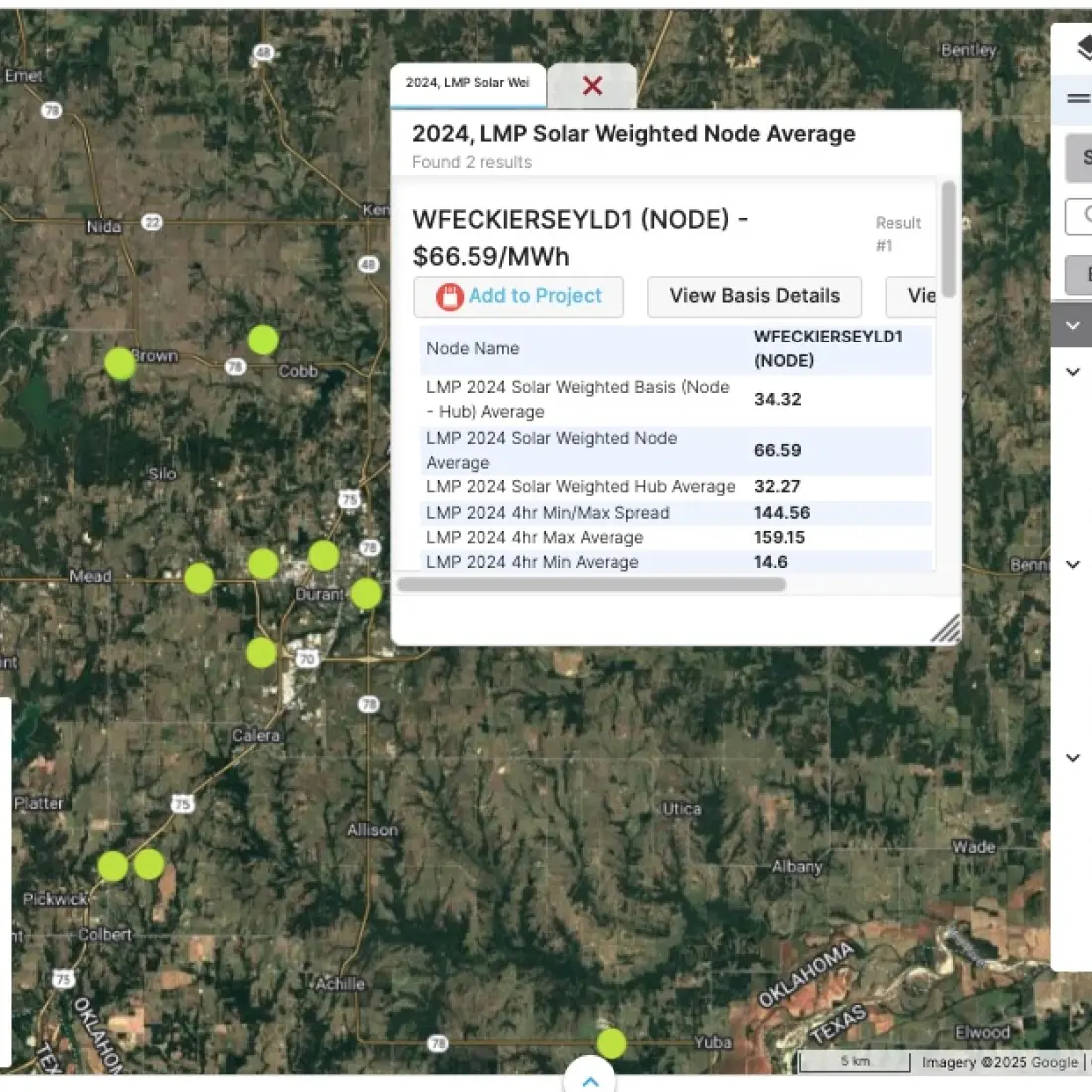Selecting ideal parcels. What to consider while using PVcase Prospect's integrated data


The global push towards renewable energy sources has reached an unprecedented momentum. As societies worldwide recognize the urgency of transitioning towards sustainable energy solutions, the role of property selection in renewable energy development has become increasingly vital. In this comprehensive guide, we will explore the multifaceted considerations involved in choosing the ideal property for renewable energy projects, leveraging the capabilities of PVcase Prospect's extensive database and renewable energy software.
Renewable resource availability/potential
At the core of any renewable energy project lies the availability and potential of renewable resources. Whether harnessing sunlight for solar farms, capturing wind energy with turbines, utilizing water flow for hydroelectricity, or tapping into biomass resources, understanding a property's renewable energy potential is paramount.
PVcase Prospect provides invaluable insights into renewable resource availability, offering data such as solar irradiance levels and wind speed data from the National Renewable Energy Library that are crucial for accurate energy yield estimations. By analyzing these factors, developers can make informed decisions regarding the suitability of a property for their chosen renewable energy type.
Land characteristics
Beyond renewable resource potential, the characteristics of the land itself play a significant role in determining a property's suitability for renewable energy development. PVcase Prospect’s database facilitates in-depth analysis of various land features, including topography, terrain, and slope. PVcase Prospect’s Buildable Area Analysis has advanced tools for slope analysis and identification of buildable areas where developers can optimize site layout and minimize construction challenges.
Additionally, PVcase Prospect provides layers depicting environmental constraints such as protected habitats, water bodies, and existing infrastructure like buildings and roads through the “constraint map/hazard” layers. This allows you to isolate any parameters specific to your project. This comprehensive understanding of land characteristics ensures compliance with regulatory requirements and minimizes potential environmental impacts.
Access to infrastructure
Access to existing infrastructure is critical for the success of renewable energy projects. Properties located in close proximity to roads, power lines, and other essential infrastructure offer logistical advantages and lower connectivity costs.
PVcase Prospect's database provides valuable insights into infrastructure access, including proximity to substations, grid capacity, and interconnection requirements. By leveraging this data, developers can assess the feasibility of connecting their renewable energy project to the electricity grid and evaluate associated costs and logistical challenges.
Additionally, PVcase Prospect offers Locational Marginal Pricing data, enabling developers to optimize project economics and maximize revenue potential.
Risk assessment & long-term sustainability
Mitigating risks and ensuring long-term sustainability are fundamental principles in renewable energy development. Flood, fire, and high wind risks should be considered. PVcase Prospect, in collaboration with First Street Foundation, now offers comprehensive data on flood risk as part of the Nationwide Flood Data package. We are excited to share that this premium addition to your PVcase Prospect database covers 100% of counties in the U.S., including all counties where FEMA does not have coverage.
Developers can implement appropriate mitigation strategies and safeguard their projects against potential hazards by conducting thorough risk assessments. Furthermore, considering long-term sustainability involves evaluating the project's impact on the environment, local communities, and broader sustainability goals. Developers can enhance the project's resilience and long-term viability by aligning with sustainable land use practices, ecosystem protection measures, and carbon emissions reduction strategies.
Regulatory/social considerations & incentives
Navigating regulatory requirements and addressing social considerations are essential steps in the development of renewable energy projects. PVcase Prospect's database provides valuable insights into zoning regulations, environmental impact assessments, and local ordinances, facilitating compliance with legal and regulatory frameworks.
Additionally, understanding the social dynamics of local communities is crucial for garnering support and mitigating potential resistance to renewable energy projects. Developers can foster positive relationships and facilitate project acceptance by engaging with stakeholders, addressing community concerns, and offering incentives where appropriate.
When considering tax incentives, you can use PVcase Prospect’s extensive datasets on available “Energy Communities” as claimed by the Inflation Reduction Act of 2022.
Final thoughts
Selecting the ideal property for renewable energy development requires a comprehensive understanding of various factors, including renewable resource availability, land characteristics, infrastructure access, risk assessment, regulatory compliance, and social considerations. By harnessing the capabilities of PVcase Prospect's database and renewable energy software, developers can confidently navigate these complexities and optimize site selection to maximize project success.
As we continue to accelerate the transition towards a sustainable energy future, informed decision-making and strategic planning will play pivotal roles in realizing the full potential of renewable energy development. With PVcase Prospect's powerful tools and comprehensive datasets, the journey towards a renewable future becomes not just a vision but a tangible reality, paving the way for a cleaner, greener, and more sustainable world.